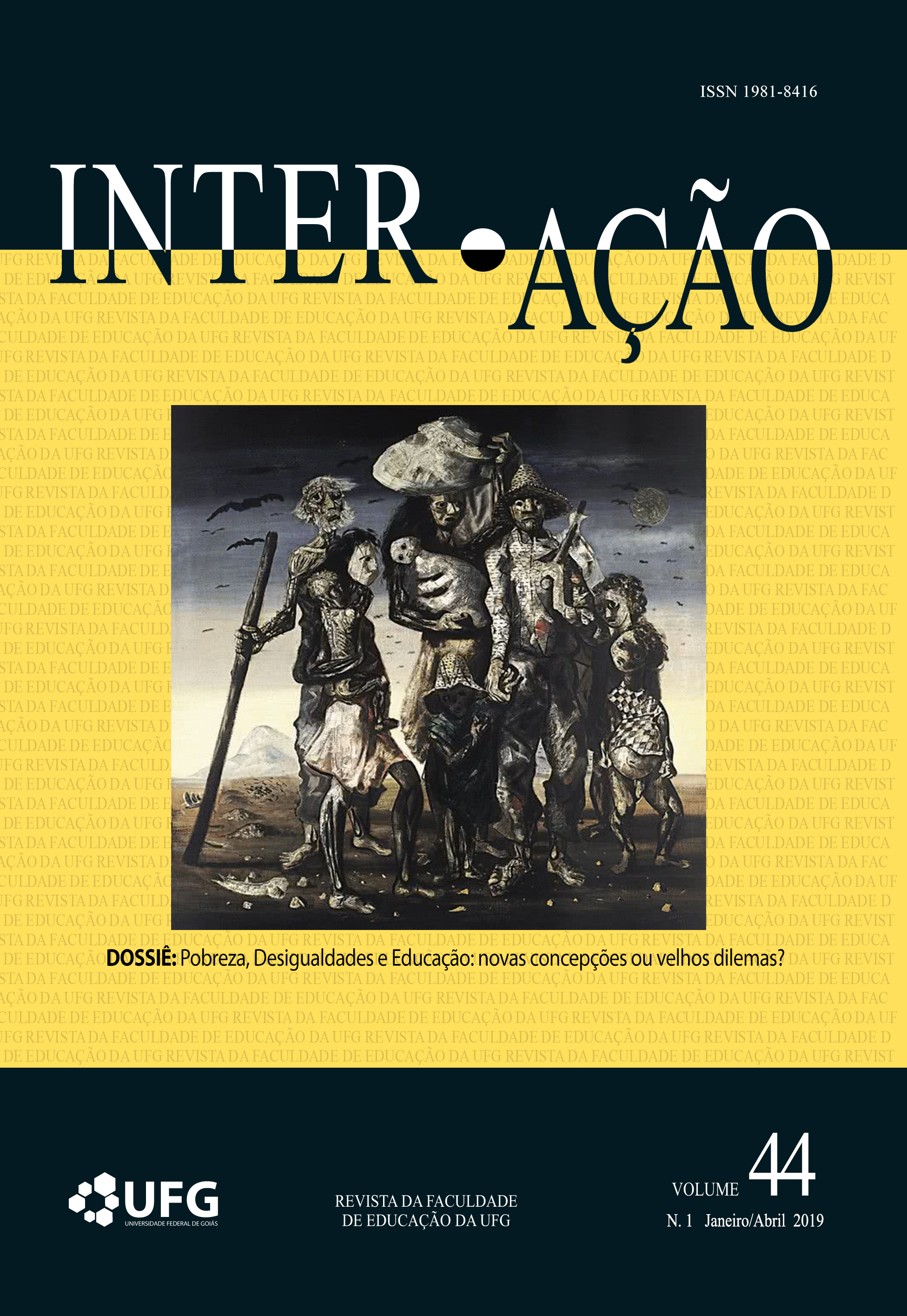A ESCOLA COMO TEMPO/ESPAÇO DE RESISTÊNCIA E SUPERAÇÃO DAS DESIGUALDADES: A RELAÇÃO COM OS TERRITÓRIOS
DOI:
https://doi.org/10.5216/ia.v44i1.55683Keywords:
Território. Pobreza. Educação emancipatória. Escola.Abstract
Este artigo especifica as análises e discussões desenvolvidas sobre a temática escola: espaços e tempos de reprodução e resistências da pobreza, com foco na relação da escola com o seu território, realizadas com o objetivo de identificar como a escola se relaciona com os seus territórios empobrecidos e analisar as implicações dessa relação para a produção de resistência e da superação da pobreza. Adotou uma pesquisa qualitativa baseado no método dialético. Evidenciou que as escolas não desenvolvem uma relação efetiva com os seus territórios no sentido de reconhecê-los como espaços importantes de aprendizagem e de produção de vida.
Downloads
Published
Versions
- 2026-01-30 (3)
- 2026-01-30 (2)
- 2019-05-09 (1)
How to Cite
Issue
Section
License
Copyright (c) 2019 Dulcinéa Campos Campos, Dulcinéa Campos Campos, Itamar Mendes da Silva Mendes Silva, Carolina Falco Fernandes Valpassos

This work is licensed under a Creative Commons Attribution-NonCommercial 4.0 International License.
Inter-Ação uses the Creative Commons Attribution 4.0 License for Open Access Journals (Open Archives Initiative - OAI) as the basis for the transfer of rights. Open access means making documents available on the Internet free of charge, so that users can read, download, copy, distribute, print, search, or link to the full text of documents, process them for indexing, use them as input data for software programs, or use them for any other lawful purpose, without financial, legal, or technical barriers.
Authors publishing in this journal agree to the following conditions:
1) Authors retain copyright and grant the journal the right of first publication, with the work simultaneously licensed under the Creative Commons Attribution License, which permits redistribution of the work with attribution and first publication in this journal.
2) Authors are permitted to enter into additional, separate agreements for non-exclusive distribution of the version of the work published in this journal (e.g., for publication in an institutional repository or as a book chapter), with attribution and first publication in this journal.
3) Authors are permitted and encouraged to publish and distribute their work online (e.g. in institutional repositories or on their home page) at any time before or during the editorial process, as this may generate productive changes as well as increase the impact and citation of the published work.















